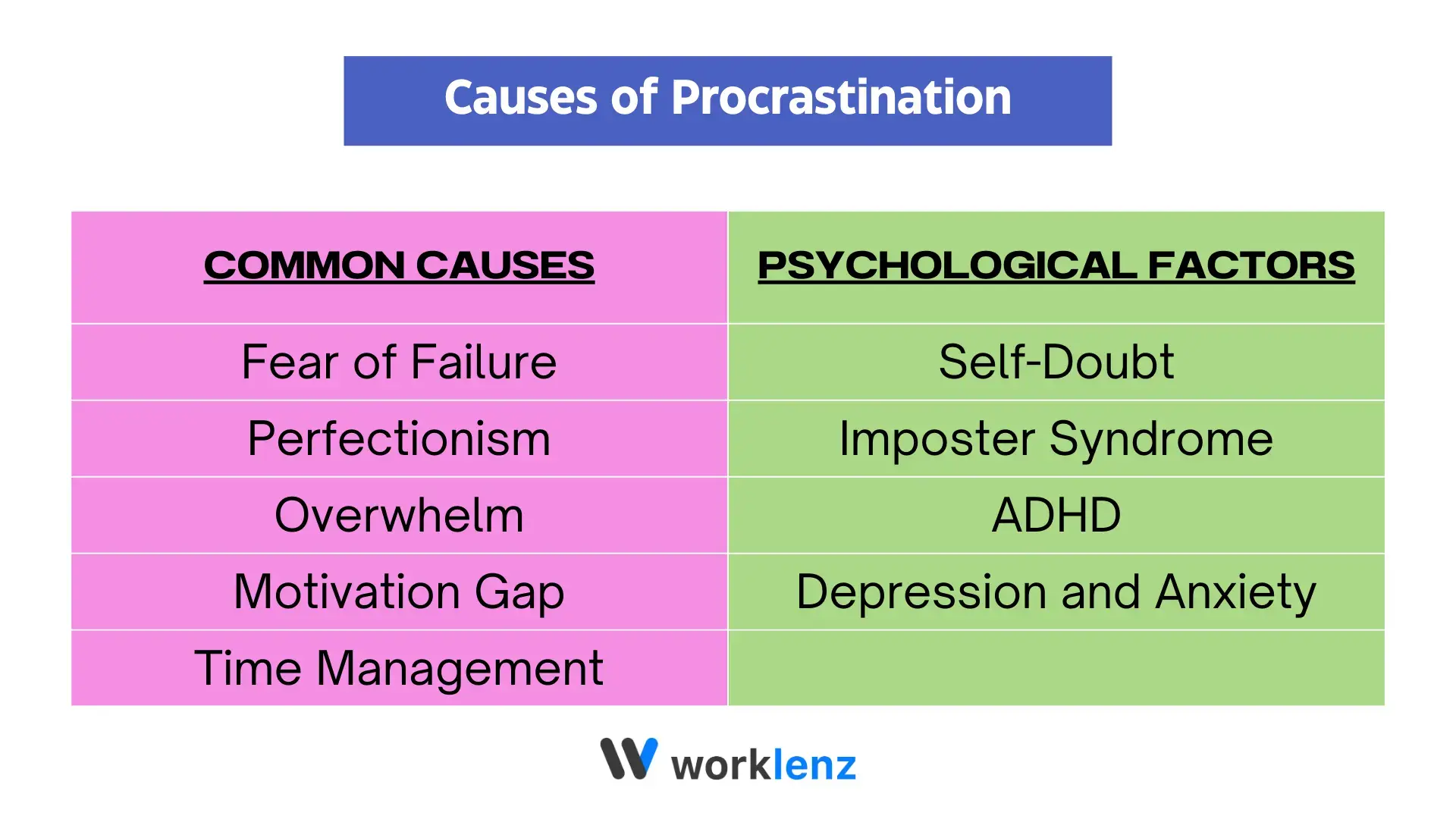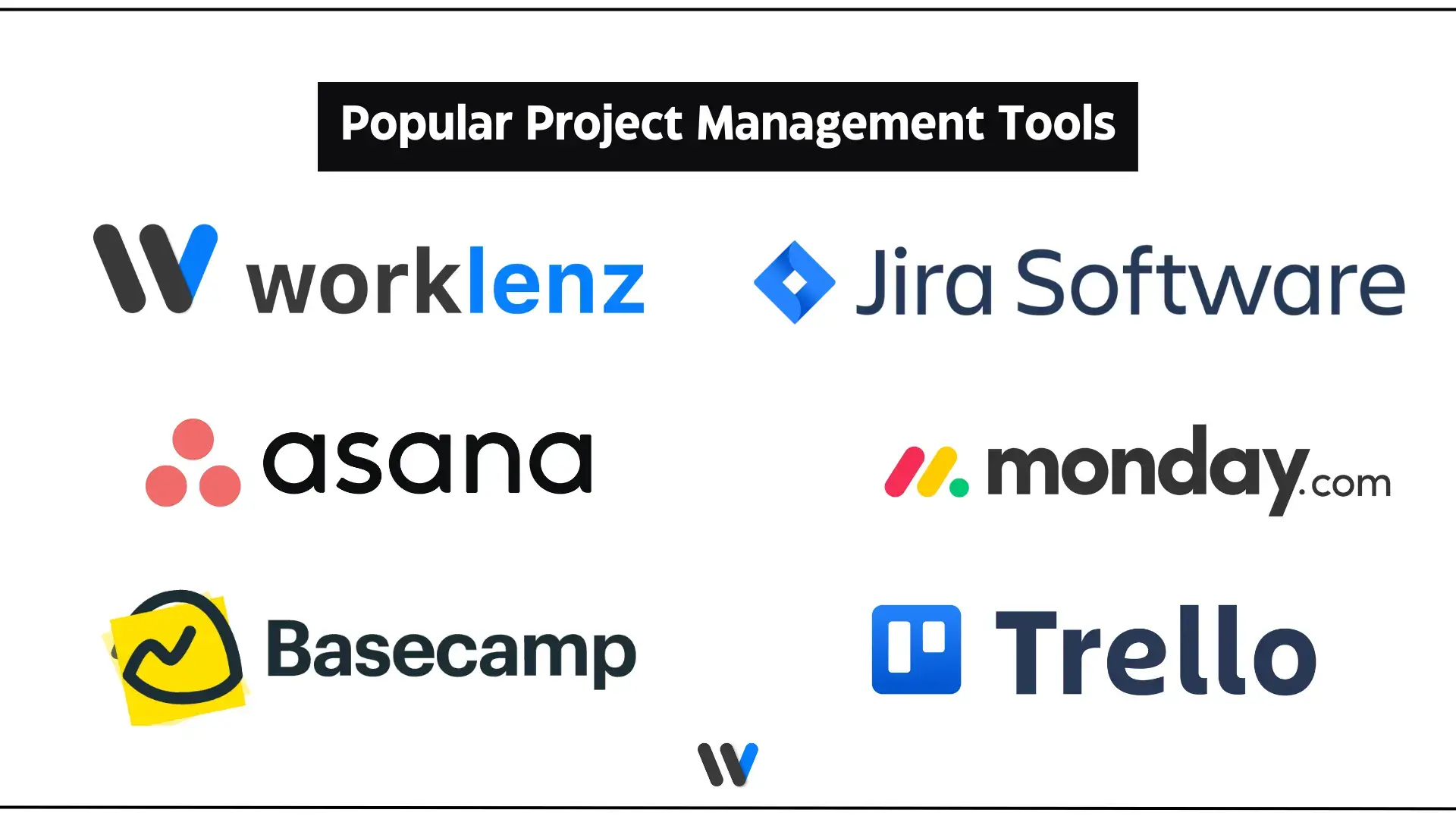Your Secret Weapon Against Procrastination - PM Tools

Procrastination - The Productivity Killer
Procrastination, the art of delaying tasks, is a common challenge faced by individuals across various walks of life. Whether it’s a looming deadline, a daunting project, or simply a mundane task, the urge to postpone can be overwhelming. This habit not only hampers productivity but also leads to increased stress, anxiety, and a sense of guilt.
Project management, on the other hand, is a systematic approach to planning, organizing, and managing resources to achieve specific goals. By breaking down complex tasks ino smaller, manageable steps, project management empowers individuals to take control of their workload and overcome procrastination.
So we can agree that effective project management tools, when implemented correctly, can serve as powerful weapons against procrastination, significantly enhancing productivity and overall well-being.
Understanding What Procrastination is
We’ve all done it. Put off that dreaded task, ignore that piling email, o postpone a difficult decision. Procrastination is the sneaky habi of delaying things, even when we know we shouldn’t. It’s like hitting the snooze button on life, but instead of a few extra minutes of sleep, we get a pile of unfinished business.
Common causes of procrastination
01. Fear of Failure
Fear of failure is a formidable foe that can cripple even the most ambitious individuals. It’s the insidious whisper that doubts your abilities, painting vivid pictures of potential embarrassment and rejection.
-
The Shadow of Self-Doubt: Self-doubt can manifest as fear of failure, hindering progress.
-
The Perfectionist’s Trap: The pursuit of flawlessness can lead to procrastination and avoidance.
-
The Fear of Judgment: The fear of others’ opinions can paralyze decision-making.
02. The Perfectionist’s Trap
Perfectionism, often hailed as a positive trait, can become a formidable adversary when it morphs into a relentless pursuit of flawlessness. This insidious habit can paralyze individuals, trapping them in a cycle of procrastination and self-doubt.
-
The All-or-Nothing Mentality: The belief that a task is either perfect or worthless, leads to avoidance.
-
The Fear of Criticism: The dread of negative feedback can fuel perfectionist tendencies.
-
The Endless Editing Loop: The habit of constant revisions, prevents completion.
-
The Procrastination Paradox: The pursuit of perfection ironically leads to procrastination and decreased productivity.
03. Overwhelm: The Crushing Weight of Tasks
Imagine a mountain of unfinished tasks looming over you, each one a boulder threatening to crush your spirit. This is the overwhelming feeling that often paralyzes individuals, leaving them trapped in a cycle of procrastination.
-
Drowning in a Sea of To-Dos: The sensation of being inundated with tasks, each one demands attention.
-
The Weight of Expectations: The pressure to meet deadlines and deliver perfect results, leads to a sense of inadequacy.
-
The Paralysis of Analysis: Overthinking and indecision can create a mental block.
04. The Motivation Gap
Lack of motivation, often disguised as laziness, can be a significant hurdle on the path to productivity. This elusive foe can sap energy, diminish enthusiasm, and ultimately lead to procrastination.
-
The Boredom Barrier: Simple or repetitive tasks can drain motivation.
-
The Value Void: It is important finding meaning and purpose in tasks.
-
The Reward Deficiency: The role of rewards and incentives in motivation is very high.
-
The Procrastination Loop: The lack of motivation can perpetuate procrastination.
05. Time Management: The Ticking Clock
Effective time management is the cornerstone of productivity, yet it’s a skill often overlooked. Poor time management can lead to a chaotic whirlwind of missed deadlines, stress, and a general sense of being overwhelmed.
-
The Tyranny of the Urgent: Urgent tasks often overshadow important ones.
-
The Weight of Expectations: Distractions and interruptions can consume valuable time.
-
The Paralysis of Analysis: Poor time management can contribute to procrastination.
-
The Overcommitment Trap: Their is a danger in overbooking and spreading oneself too thin.
Psychological Factors Affecting Procrastination
01. The Shadow of Self-Doubt
Low self-esteem casts a long shadow, obscuring one’s potential and fueling procrastination. It’s the insidious whisper that doubts your abilities, replacing confidence with fear.
-
The Inner Critic: The role of negative self-talk plays a role in perpetuating low self-esteem.
-
Fear of Failure: The pursuit of flawlessness can lead to procrastination and avoidance.
-
The Comparison Trap: The impact of social comparison on self-esteem.
02. Imposter Syndrome: The Fraudulent Feeling
Imposter syndrome, a pervasive and often debilitating experience, is the insidious belief that one’s success is undeserved and that they are merely faking their way through life. It’s the persistent fear of being exposed as a fraud, despite overwhelming evidence to the contrary.
-
The Self-Doubt Spiral: Self-doubt can perpetuate the imposter syndrome cycle.
-
The Perfectionist Connection: he link between perfectionism and imposter syndrome.
-
The External Validation Trap: the reliance on external validation to feel worthy.
-
The Fear of Failure Amplified: The imposter syndrome can intensify the fear of failure.
03. ADHD
Attention Deficit Hyperactivity Disorder (ADHD) is a neurodevelopmental condition characterized by difficulties in focusing, staying organized, and controlling impulsive behaviors. For many, ADHD manifests as a persistent fog that clouds concentration and hinders task completion.
-
The Distracted Mind: The constant battle against distractions that individuals with ADHD face.
-
The Time Blindness: The challenges of time management and the perception of time for those with ADHD.
-
The Task Switching Trap: The difficulty in transitioning between tasks and the impact on productivity.
-
The Hyperfocus Dilemma: The phenomenon of hyperfocus and how it can interfere with task completion.
04. Depression and Anxiety
Depression and anxiety, two insidious mental health conditions, can cast a pervasive shadow over daily life, including the ability to manage tasks and meet deadlines. These conditions often intertwine with procrastination, creating a complex and challenging cycle.
-
The Energy Drain: Depression can deplete motivation and energy levels, hindering task initiation.
-
The Overwhelm: Anxiety can magnify perceived challenges, leading to avoidance behaviors.
-
The Fear of Failure: Anxiety can amplify the fear of failure, contributing to procrastination.
-
The Self-Doubt Spiral: Depression can fuel feelings of inadequacy and worthlessness, hindering progress.

The Impact of Procrastination on Personal and Professional Life
The Ripple Effects of Procrastination
Procrastination isn’t just about delaying a task; it’s a ripple that extends far beyond the original deadline. From personal well-being to professional success, the consequences can be significant.
A Drain on Productivity
Procrastination is like a slow leak in a boat. It might seem small at first, but over time, it can sink your productivity. When tasks pile up due to constant postponement, it becomes increasingly difficult to focus and get things done. This can lead to missed deadlines, lower quality work, and a general feeling of being overwhelmed.
A Stressful Toll
The looming shadow of unfinished tasks can cast a long and dark cloud of stress and anxiety. Constant worry about upcoming deadlines and the pressure to catch up can take a toll on both mental and physical health. This chronic stress can disrupt sleep, impair concentration, and even lead to physical symptoms like headaches or stomach problems.
Damaged Relationships
Procrastination isn’t just a personal problem; it can also strain relationships. Missed deadlines, broken promises, and unreliable behavior can erode trust and damage professional and personal connections. When you consistently prioritize procrastination over commitments, it can leave others feeling frustrated and resentful.
Lost Opportunities
Putting things off can mean missing out on valuable opportunities. Whether it’s a career advancement, a personal goal, or a chance to learn something new, procrastination can be a major roadblock. By delaying decisions or actions, you risk missing out on experiences that could enrich your life.
Financial Fallout
When it comes to finances, procrastination can have serious consequences. Ignoring bills, delaying tax filings, or postponing investment decisions can lead to financial penalties, stress, and even legal trouble. Poor financial management caused by procrastination can create a domino effect of problems that can be difficult to recover from.
Project Management Tools as a Solution
How Project Management Tools Work
Project management tools are software applications designed to assist individuals and teams in planning, organizing, and managing projects efficiently. These tools offer a centralized platform to collaborate, track progress, and allocate resources effectively. By providing a structured framework, they help break down complex projects into manageable tasks, ensuring that no crucial steps are overlooked.
Key Features of Effective Project Management Tools
-
Task management: Create, assign, and prioritize tasks, set deadlines, and track progress.
-
Collaboration: Facilitate communication and teamwork through real-time updates, comments, and file sharing.
-
Time tracking: Monitor time spent on tasks to improve efficiency and identify time-consuming activities.
-
Project planning: Create project timelines, Gantt charts, and milestones to visualize project progress.
-
Resource management: Allocate resources effectively and balance workloads.
-
Reporting and analytics: Generate reports on project performance, identify bottlenecks, and measure key metrics.
Benefits of Using Project Management Tools for Productivity
-
Improved organization: Centralized platform for storing project information and tasks.
-
Enhanced collaboration: Improved communication and teamwork among team members.
-
Increased productivity: Streamlined workflows and efficient task management.
-
Better time management: Effective time tracking and allocation of resources.
-
Improved decision-making: Data-driven insights for informed decision-making.
-
Reduced stress: Clear visibility of project progress and deadlines.
Overcoming Procrastination with Project Management
Breaking Down Overwhelming Tasks
One of the primary reasons for procrastination is the perception of a task as being too large or complex. Project management tools excel at breaking down these daunting tasks into smaller, more manageable sub-tasks. By dividing a project into smaller, achievable steps, individuals can focus on completing one task at a time, gradually building momentum and reducing the overall feeling of overwhelm.
Setting Clear Goals and Deadlines
Effective project management involves setting clear, specific, measurable, achievable, relevant, and time-bound (SMART) goals. Individuals can create a sense of urgency and accountability by defining precise objectives and establishing realistic deadlines. Project management tools facilitate goal setting and tracking, providing visual representations of progress and helping to maintain focus.
Prioritizing Tasks Effectively
Prioritization is crucial for overcoming procrastination. Project management tools offer features like task ranking, labeling, and dependency mapping to help individuals prioritize tasks based on importance, urgency, and dependencies. By focusing on high-priority tasks first, individuals can maximize their productivity and avoid wasting time on less critical activities.
Time Management Techniques
Effective time management is essential for combating procrastination. Project management tools often incorporate time-tracking features, allowing users to monitor how they spend their time. Individuals can identify time-wasting activities and allocate time more efficiently by analyzing usage patterns. Techniques like the Pomodoro Technique, which involves working in focused bursts with short breaks, can also be integrated into project management workflows.
Using Project Management Tools for Task Tracking and Progress Monitoring
Project management tools provide a centralized platform for tracking task progress and visualizing overall project advancement. By regularly updating task statuses, individuals can maintain a clear overview of their accomplishments and identify areas where they might be falling behind. This transparency helps to combat procrastination by providing a sense of accomplishment and motivation to stay on track.
Building Accountability and Motivation
Project management tools can foster a sense of accountability by allowing users to share progress with team members or supervisors. Collaborating with others can create a supportive environment and encourage to stay focused. Some project management tools also offer gamification elements, such as progress bars or rewards, to motivate users and make the process more enjoyable.
Choosing the Right Project Management Tool
Selecting the appropriate project management tool is crucial for maximizing its benefits in combating procrastination. Several factors should be considered when making this decision.
Factors to Consider When Selecting a Tool
-
Project size and complexity: Determine if the tool can handle small, individual projects or large, complex initiatives.
-
Team size and collaboration needs: Evaluate the tool’s ability to support collaboration among team members.
-
Budget: Consider the cost of the tool and its associated features.
-
Ease of use: Choose a tool with an intuitive interface and minimal learning curve.
-
Integration capabilities: Assess the tool’s compatibility with other software used by your team or organization.
-
Mobile accessibility: Determine if the tool can be accessed and used on mobile devices
Popular Project Management Tools
A wide range of project management tools is available, each with its strengths and weaknesses. Some popular options include:
Worklenz: The best open-source project management tool.
Asana: Known for its clean interface and focus on task management.
Trello: Offers a visual Kanban-style board for easy project organization.
Monday.com: Provides flexibility with customizable workflows and integrations.
Basecamp: Emphasizes simplicity and communication for teams.
Jira: Primarily used for software development but can be adapted for other projects.
It’s essential to research and compare different tools to find the best fit for your specific needs. Consider trying out free trials or demo versions to assess usability and functionality firsthand.

Tips for Implementing a Project Management Tool
Start small
Begin by implementing the tool for a single project to minimize disruption.
Provide training
Offer training sessions to familiarize users with the tool’s features.
Encourage adoption
Promote the benefits of using the tool and provide ongoing support.
Customize the tool
Tailor the tool to fit your team’s specific workflow and preferences.
Regularly review and adjust
Continuously evaluate the tool’s effectiveness and make necessary adjustments.
By carefully selecting and implementing a project management tool, individuals can significantly improve their ability to overcome procrastination and achieve their goals.
Conquering Procrastination with Project Management
Procrastination can be a formidable obstacle to productivity and success. However, by harnessing the power of project management tools, individuals can effectively overcome this challenge. By breaking down tasks, setting clear goals, tracking progress, and fostering accountability, project management empowers individuals to take control of their time and achieve their objectives.
Selecting the right project management tool is essential for maximizing its benefits. Consider factors such as project complexity, team size, budget, and ease of use when choosing a tool. Implementing the tool effectively involves providing training, encouraging adoption, and making necessary adjustments to fit individual needs.
By incorporating project management strategies into daily routines, individuals can experience a significant boost in productivity, reduce stress, and unlock their full potential. Remember, the key to overcoming procrastination lies in taking action, setting clear goals, and utilizing the right tools to support your journey to success.
Work Smarter, Not Harder with Worklenz
Procrastination doesn’t have to control your productivity. By implementing the right task management strategies and leveraging powerful tools, you can take charge of your workload and stay ahead of deadlines.
🚀 Break free from procrastination and take control of your productivity with Worklenz. Experience seamless task management, better focus, and real results.
👉 Sign Up for free or Book a demo today!